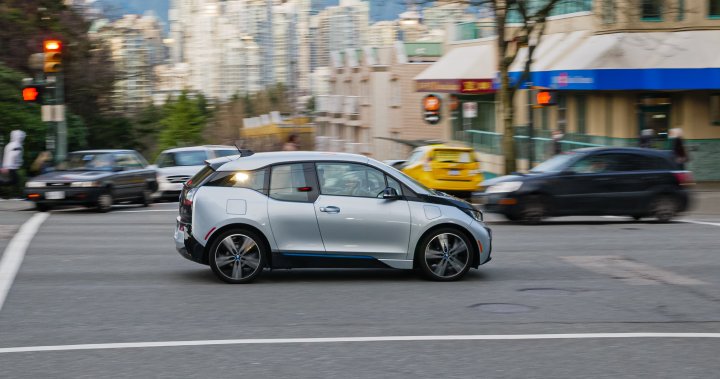
Canada’s auto makers say 2022 budget not enough for electric vehicle target sales
Global News
The Canadian auto industry says federal budget programs for electric vehicles and charging stations aren't enough to reach the government's ambitious new sales targets.
The Canadian auto industry says federal budget programs for electric vehicles and charging stations aren’t enough to reach the government’s ambitious new sales targets.
Those targets, unveiled last week with the new national emissions reduction plan, added a goal that one in five new cars sold will be zero emissions by 2026, and by 2030, the target is 60 per cent.
That is up from the 50 per cent goal the Liberals set less than a year ago.
Brian Kingston, president of the Canadian Vehicle Manufacturers’ Association, says the unexpected change means Canada is now out of line with the United States, which is still aiming for 50 per cent by 2030.
“This industry is totally integrated throughout North America and we’ve been urging the government to work with the Americans to have shared targets,” Kingston said.
About five per cent of vehicles sold in the first nine months of 2021 were battery-electric or plug-in hybrids, compared with about three per cent in both 2020 and 2019.
Canada needs to quadruple those sales in the next four years to hit the first target in 2026.
To nudge things along, the 2022 federal budget promises to spend another $1.7 billion on electric vehicle rebates for consumers by 2025. It’s more than triple the $589 million spent on federal rebates since 2019, and higher than the $1.5 billion promised by the Liberals during last fall’s federal election.











